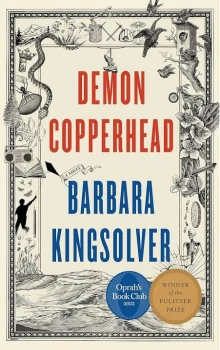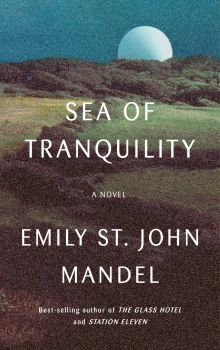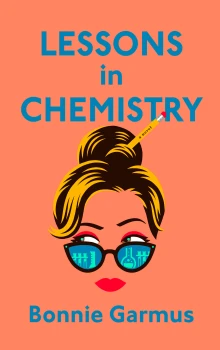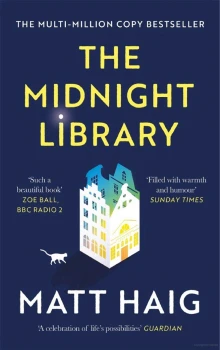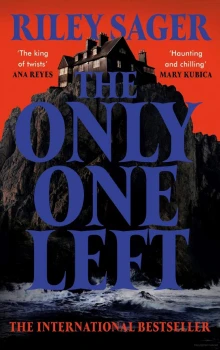In the morning, at ten o’clock precisely, the Duchess arrives in her long sleek car, driving herself this time. Just inside the back door, Margaret hesitates. But Bird doesn’t. He is eager to go.
Good luck, he says. Confidence beaming from his eyes.
Okay, she says at last. I’ll see you soon.
She pulls him close, kisses him on the temple, just where the pulse beats under the skin.
Then Bird, backpack slung over his shoulder, darts through the back garden and out the fence and slips into the car at the curb. There, at the other end of the seat, is a figure silhouetted against a tinted window, turning as he enters. Taller—half a head taller than him now, maybe—longer haired, but the same quick eyes, the same skeptical grin.
Bird, Sadie says. Oh my god, Bird.
She throws her arms around him. Her skin smells of cedar and soap. Bird, she says, I’ve got so much to tell you—
If you’re going to gossip about me, please wait until we’re out of the city, the Duchess says drily. I don’t want to miss anything while I’m concentrating on traffic.
Sadie gives an exaggerated eye roll toward the front seat.
Fine, she says.
In the rearview mirror Bird sees the Duchess’s eyes twinkle back at them, and this more than anything reassures him. Sadie is at ease here, in a way he’s never seen. As the car shifts back into gear, she settles into her seat and turns her gaze to the window, letting out a soft sigh. It’s been months since they saw each other, but somehow Sadie seems younger rather than older, less wary and watchful, as if she’s finally able to breathe after a long time without air. As if she no longer has to fight her way through the world alone. He knows this feeling, or something like it: it is what he felt last night, when he’d called his mother and she came to him; it is what he felt this morning, waking under the comforting weight of her coat. He settles back into his seat, too, happy to be just a child for the moment, not in charge, simply along for the ride. There is so much he wants to ask Sadie—he cannot imagine living with the Duchess, for one thing—but he can wait.
Where are we going? he asks, as the Duchess nudges the car back into traffic again.
To the cabin, she says, and then they’re off.
She drives fast, the Duchess, Bird and Sadie belted firmly in back and pinned in place by unrelenting acceleration, and as they burst out of the tangled gray nest of the city and onto the open road, it feels like a rocket launch into the stars.
I hope neither of you gets carsick, the Duchess says suddenly, with a glance into the rearview mirror.
Neither of them does. Bird is seldom in a car and the sheer speed of it exhilarates him. The tinted windows deepen the colors outside, turning the sky turquoise, the grass emerald. Even the road, which he knows is ordinary flat asphalt, gleams with a silver sheen. In the Duchess’s proximity everything seems richer and more expansive, and this makes such inherent sense to him that he does not question it, simply settles against the soft leather and absorbs it. Beside him, Sadie draws in her breath quickly as a cloud of birds rises from a tree and scatters like a handful of confetti. For the first time he understands why dogs hang their heads out of windows: after so long inside, he, too, feels eager to lap up all he can, the very air tingling with life.
They drive for an hour and a half in companionable silence, the only noise being the occasional whoosh as they whip past another car or truck. The Duchess does not use signals, merely plants her foot firmly on the gas pedal and speeds past as the engine lets out a throaty growl. Bird wonders where the other half of the highway is, the side returning to the city—on the far side of the trees, perhaps. Though he can’t see it, it must be there. It is an exercise in faith. His mother has promised him she will come back. Another exercise in faith. He will remember everything and when he returns he will tell her what he’s seen.
The Duchess has referred to it as the cabin and in the strictest sense this is true: a little milk carton of a house, encircled by trees. To Bird and Sadie, cabin calls to mind Abe Lincoln, hewn logs, and howling wolves. The Duchess’s cabin is small and simple, but this is as far as the resemblance goes. The wooden floors in the main room gleam like buttery toffee. The big fireplace at its center is made of rounded river stones. Behind it are a pair of small bedrooms, a bathroom. On one wall, a window peeks through a clearing in the trees to the silver sparkle of water in the distance.
I’m trusting you not to drown, the Duchess says. There’s not another house for miles, so no one will be coming to save you.
She lifts her wrist and checks a slim gold watch.
So here are the rules, she says. You are not to go off the property, but it’s forty-seven acres so I assume that won’t be too much of a limitation. You may swim, if you don’t mind the cold. You may make a fire, if you’re careful. In the fireplace only. I’ve left you a bag of food that should last until I come back tomorrow. Anything unclear?
Who built this house? Sadie asks. Somehow I don’t think it was you.
She grins cheekily at the Duchess, and the Duchess smiles back indulgently.
My father did, she says.
She pauses suddenly and looks around, as if she is seeing the cabin for the first time. Taking in the wooden walls, the planked ceiling, the satiny floor.
Or rather, had it built, she says. That’s how he did things. Her voice softens. When I was little, we used to sit on the shore, out there, and fish. He and my mother and I. I haven’t been here in many years.
Then she shakes her head, as if shrugging away dust. So don’t burn it down, please, she says crisply.
Are you going back to help my mother? Bird asks.
For the first time the Duchess looks uncertain.
You know your mother, she says, and Bird nods, even as he wonders if this is true. When she gets an idea in her head there’s no stopping her. But she’s coming to me when she’s finished, and we’ll be here tomorrow morning to pick you up.
And then what, Bird and Sadie both think, but neither of them dares to ask.
The Duchess checks her watch again.
I’d better go, she says. I won’t get back until midafternoon as it is, and if there’s traffic—
She picks up her keys from the table and turns back, looks from one of them to the other.
Don’t worry, she says, her voice unexpectedly gentle. Bird, Sadie. Everything will be fine.
Of course it will, Sadie says. We’re here, now.
When the Duchess is gone, Bird and Sadie—suddenly aware of all the months that have passed between them—lapse into bashful silence. Tacitly, they take stock of their surroundings. In the big main room, a table and three chairs, a kitchenette; in the bathroom, a shower and toilet and a small louvered window through which they can see nothing but trees. Two bedrooms, a larger one, cream colored with a big double bed, and a smaller one—pink—with a twin bed in the corner.
Without asking, Sadie kicks her shoes off in the big room, but Bird doesn’t mind. It’s clear who the house was built for—parents, child—and he is happy to let someone else play the role of adult for a little while longer. He settles on the sofa in front of the fireplace, and beneath him the aged leather crackles.
What is it like, he says. Living with the Duchess. What is that like?
Sadie laughs. Domi? she says. She seems super scary, but she’s not.
As if a seal has been broken, she begins to chatter away. The first day, she said, she hadn’t seen Domi at all. She’d been given a bedroom—up on the top floor, with a huge antique map of the world hung on the wall—and left to her own devices, and she’d spent all day exploring the museum of a house, trying to figure out what kind of place she’d landed in, what kind of woman Domi was. Margaret said she could be trusted, but Sadie was not used to taking things on assurance. Late that night, she’d found her way into Domi’s office and was still behind the desk, reading the papers scattered there, when Domi came in.
And just what do you think you’re doing? Domi demanded, and Sadie had looked up, studying her with new eyes.
So all these checks, she said, ticking her finger down Domi’s ledger. To all these libraries. You know what they’re doing. You’re—helping.
A long moment, where they appraised each other anew.
Why, Sadie asked, and Domi said: It’s one small thing. To start to make things right.
Sadie shut the checkbook. I want to help, she said.
She’d expected Domi to laugh, but she didn’t. Instead Domi had sat down in the chair across the desk, as if Sadie were in charge and she was the supplicant, asking for a favor.
Maybe you can, she said.
They’d spent days talking, Sadie telling Domi everything she remembered about the authorities, her host families, the whole system of PACT. How they’d moved her, who had met her, where she’d gone. What she’d seen in the libraries, those months in which they’d hidden her. What she’d wished she’d done, and what she’d wished others had. Domi listening. Learning.
I couldn’t go out, Sadie says to Bird. In case anyone spotted me. But Domi found me stuff to do. And she’s been looking for my parents. Trying to trace where they’ve gone.
She pauses and swallows, and Bird knows better than to ask.
She said not to give up yet, Sadie says. She says—well, she says you just never know.
The day before Bird arrived, Domi’s last lead had come up empty, and she’d broken the news to Sadie gently, the way you’d break news of a death. We’ll keep looking, she’d promised, holding Sadie tight.
If you could have anything else, Domi had asked eventually, breaking the silence. What would you wish for.
Sadie considered.
A whole day where I could do whatever I wanted, she said. Without anyone watching or judging or tracing or tracking me. Just one day like that.
Hmm, Domi said. Might be tricky. But maybe there’s a way. If you can wait a bit, until the right time.
And now here they were, she and Bird. A day with no one watching or judging. A day to do what they wanted.
She told me, Sadie says. Some of the things she and your mom saw in the Crisis. The things they did—and the things they didn’t do. Things she would’ve done differently. You know that day you came? she adds smugly. I told her what to ask. She came upstairs and said, what would you ask Bird to find out if he really was Bird? And I told her, ask about his bike. Ask about his cereal. Ask about lunch.
Do you know? Bird asks. What my mom’s doing.
Sadie pauses.
Domi wouldn’t tell me exactly, she admits. Your mom came a few times, to plan. I tried to listen, she adds, rather proudly. But I couldn’t hear much.
Together, they pool notes. By their math, Margaret must have hidden thousands of bottle caps, all over the city. At the Duchess’s, Sadie had flipped through the newspapers and scanned news reports on television and online: no reports of people finding suspicious devices in bottle caps. No reports of trouble, at least not in the city. Whatever is being set up, it hasn’t happened yet. For weeks this has been going on, like a spring being inexorably wound.
It’s something big, Sadie says.
Of course it is, Bird says. My mother doesn’t do things by halves.
I don’t think Domi does either.
Their eyes meet.
Bird, Sadie says, I bet this will change everything. Whatever they’re planning.
For a moment they pause, trying to imagine a world after. Inside Bird fizzes with excitement, and he jumps to his feet. Needing somewhere to put it.
Let’s go down to the water, he says.
They follow the path through the clearing in the trees and there it is: sparkling in the sunlight, a little inlet stretching out to the blue expanse beyond. Bird scoops up a pebble and tosses it as far as he can. With a satisfying bloop the water swallows it in a single gulp, and rings ripple back to his feet at the shore. The Duchess is right: as far as they can see, there are no other houses, no other people, just a dense ruff of trees clustered around this spangle of a cove. From above it must look as if a giant has pressed a thumbprint into the forest, carving this perfect hollow for the cabin right at the water’s edge.
He has never been so far from other people before. All his life, there have always been others nearby, watching, listening. Even if you couldn’t see them, you knew they were there: just through the window, just on the other side of the wall, just out of sight around a corner. Out here there is no one and he feels himself expanding to gigantic size. Beside him, Sadie gives a sudden whoop, and he gives one, too, and from the nearby trees a cluster of sparrows takes flight, and then they are running, shrieking, churning the rocky shore with their footprints, darting after the velvet chipmunks that whip between the roots of trees and the squirrels that scamper out of reach. When they collapse, exhilarated and exhausted, the hum of silence that settles over them again feels louder than their shouting. For the moment neither of them thinks about their parents. They are simply children, at play.
Let’s go in, Sadie suggests. Just up to our ankles.
They pry off their sneakers and socks and roll their jeans to their knees, and as they tromp in, small muddy rings echo outward from their feet. The water is frigid, but they don’t notice or care. There are trees to climb, not the thin reedy saplings that ringed the playground, rippling the asphalt with their roots, but tall ones that stretch higher even than Sadie dares to venture.
They spend the afternoon noticing things: the fine white Vs on each clover leaf, as if painted by a thin-bladed brush. The salmon-colored mushroom caps prodding up through the soil; the delicate lichens that cling to tree trunks like jade fish scales. A slim young birch, too tall for its slender whip of a frame, bowed nearly into an arch, but growing, still growing nevertheless, sending its jagged green leaves toward the sky. October is nearly over, winter is coming, but things are growing, still alive.
As the afternoon starts to dim, Sadie gives a yelp, and Bird comes running just in time to see a little crab, the size of a quarter, scuttle across the sand. Now that he looks, he spots them everywhere, hiding in plain sight. They’ve been there all along; he just hadn’t looked. For a while they try to catch them, chasing them across the shore, trying to scoop them up in their hands, and once Sadie gets close enough and gets nipped by tiny claws, but every time the crabs escape: down into holes in the sand, among the rocks, out into the vast blue blur of the water.
You need a chicken leg, Sadie says, with authority. She drops to a squat on the sand. That’s what you need. To get big crabs, way bigger than this.
She pauses.
My mom took me one summer, she says. You tie a chicken leg to a string and throw it in the water, and when the crab grabs it, you pull the string toward you, really really slow, and the crab follows the chicken, and then you catch the crab in a net.
Bird imagines his own parents teaching him this: mud streaked, wading in the sea. Laughing together, the way he remembers. Reeling in a line heavy with prey. He wonders, suddenly, what time it is, what his mother is doing right now, if whatever she’s planning has already begun. Above them the sky stretches wide and flat and blue, but he scans it anyway, as if they might spot plumes of smoke drifting all the way from the city.
Crabs eat chicken? he asks, pushing the thought away, and Sadie nods. They eat everything, she says.
My mom told me once, she goes on, rocking back on her heels, about this thing that happened where she grew up. Sometimes, like one night a year, all the crabs get confused and run up on the shore. It’s like the tide and the phase of the moon, or something. A jubilee, it’s called. You wake up in the middle of the night and go down to the beach and the water is just full of them. They practically crawl out—you can just reach in and pull them out, bucketsful. She and her cousins and aunts and uncles used to do it. People would fill their trucks. And they’d build a big bonfire and cook the crabs and have a midnight feast, right there.
Wow, Bird says.
She said when she was a girl, she would go to bed in her bathing suit every night in summer and lie there awake in the dark, just praying for a jubilee.
Sadie is lost in thought, her eyes trained on something off in the distance.
She always said we’d go down some summer and visit that side of the family so I could meet all my cousins, but we never did.
Overhead a hawk circles, lazy, in the sky.
We’ll find her, Bird says. My mom, Domi—I’m sure they can find her.
They’ve been looking, Sadie says. I don’t know if she’s still out there.
He has never heard her sound so uncertain, and this disorients him.
If she’s out there, Bird says confidently, they’ll find her. His mother, he thinks, always keeps her promises.
This thing your mom is planning, Sadie says, this is it, Bird, it’s going to change everything.
The tiniest of pauses, before she continues.
I mean, it has to. Right?
The little hitch in her voice, like a splinter, snags Bird’s attention. Sadie’s eyes appear to be fixed on the horizon, but in the warm afternoon light they shine glass-bright, glazed with tears. His own eyes go liquid and hot. He thinks of everything his mother has told him, of all the years his father has been trying to protect him. Of the man in the pizza parlor, the man at the Common. The woman with her dog. Sadie’s parents, his mother’s parents. His father’s parents retreating from their lives, Mrs. Pollard crouched anxiously beside his computer, D. J. Pierce’s spit falling inches from his shoe. Everything that needs to be changed feels immense and immeasurable.
You know, he says. We could build a fire.
It works: her eyes come back from the realm of what if to what is. Right here? she says.
In the fireplace, Bird says. We don’t have any crabs, but we can have a fire.
Together, they lay out the wood. A small and concrete thing. My dad showed me how, Sadie says, he was a Boy Scout as a kid. He knew how to do lots of useful stuff, like tie knots, and find north using the stars. You stack it like a log cabin, like this. Dried grass, then sticks, then logs.
Bird flushes. His father has never taught him to do anything useful like this. Like the three little pigs, Bird says. Sadie laughs, and he feels an odd twinge of pride. It feels good, making someone else laugh.
Here goes, Sadie says, and lights a match with a quick grating flick.
The dried grass catches right away, and then the twigs, a burst of gratifying orange. Then the whole thing collapses and goes dark. Huff, puff, Sadie says. With a stick she sweeps the remnants of their fire aside. Let’s try again.
They rebuild the crosshatches of wood, and Bird looks for something to help it catch faster, and it’s then that he spots the stack of newspapers, set by the hearth. He reaches for one, begins to crumple it, then stops.
Look, he says.
The date on the paper is almost fifteen years old. The middle of the Crisis, they both realize. sixth straight day of disruptions roil dc; 400 arrested; 12 rioters, 6 officers slain.
A photo covers the entire front page: Washington, DC, ablaze, a crowd of people on the run. Attacking? Fleeing? They can’t tell, only that from the sharp angles of their bodies—arms and legs thrown wide—they are moving fast, forcefully, instinctively. They wear black, from the hats pulled low over their foreheads to the masks and scarves across their faces, all the way down to the lug-soled boots on their feet; they could be protesters or authorities, it’s impossible to say. On the pavement, almost obscured, lies a woman’s body, her face turned aside, blood matting her hair. In the background the Washington Monument juts like a single raised finger, dark against a smoldering orange sky.
With both hands Bird crushes the paper into a tight wad, hiding the photograph inside.
Let’s try again, he says.
He sets the knot of paper in the middle of the miniature cabin they’ve built, and reaches for the matches again.
This time, the flame gobbles the paper, flaring up as the newsprint dissoves to ash. Small flames lick hesitantly at the sticks and begin to fade, and this time, Bird remembers something from long ago, something his father once told him. A word, and its story. He drops to hands and knees, sets his face before the flame. As gently as he can, he purses his lips and blows, as if blowing a kiss, or soothing a bruise, and the flames rise, the tinder crumples and shrivels and glows the most intense orange he’s ever seen, and then—as he runs short of breath—fades back to gray. Sadie drops down beside him and blows, too, and the glow slowly returns, then grows. It is like watching color return to someone’s face, like watching dawn spreading across a darkened sky.
In silence they tend the fire in turns—first Bird, then Sadie, then both together, breathing life into it—until the larger sticks catch, then the logs, and the flames grow steady and calm and hot.
Spirare, Bird hears his father say. To breathe. Con: together. So conspiracy literally means breathing together.
They make it sound so sinister, Sadie says, and only then does Bird realize he’s spoken aloud. But breathing together, breathing the same air—it’s actually kind of beautiful.
They sit for a moment, quiet, and Bird thinks back to the past days huddled with his mother around the coffee table. Piecing together her whispered story, both of them breathing in the same thick air. Sadie feeds a stick into the fire, nudging it closer to the little blaze until it begins to char and glow. Outside, the sun is falling but the night is still warm, and through the window they see the air ignite. Fireflies. In their excitement they have left the door open and a firefly drifts into the cabin, then another, green sparks shimmering in the red glow of the fire.
I used to hate her, Bird says suddenly.
But you don’t anymore.
A long silence. Around them, bright flecks swirl and dip.
No, he says, and realizes it is true. Not anymore.
For dinner they eat from the paper bag of food the Duchess has left them. Bird heats water, tips in a packet of angel hair. It’s good, Sadie says. You know my foster parents wouldn’t let me use the stove? Thought I was a risk. Like I might set the whole house on fire.
They scrape the last dregs of sauce from their bowls.
What do you think she’s doing right now? Bird says.
Sadie furrows her brow. She’s getting ready, she says. Ready to set them all off.
By them she means the hundreds of bottle caps scattered all over the city.
Do you think— Bird hesitates. Do you think she’s dangerous? I mean, she couldn’t hurt anyone. Could she?
A long pause as they both turn this over in their minds.
I think, Sadie says finally, that anyone could hurt someone, if there was a really good reason.
Bird thinks of his mother, tugging him into the shadows as the police car approached, the sharp-toothed animal that suddenly reared in her eyes. He thinks of his father, that day on the Common, standing over the man who’d pushed him. Of the blood on his fist. They’d been dangerous, he thought; they’d loved him so fiercely it had made them dangerous.
They go to bed early, taking turns in the bathroom, letting their hard-earned fire die down to coals. They are eager for tomorrow. They are full of plans, each building on the other’s like a tower of dominoes. Tomorrow, Domi and Margaret will bring them back to the city. Where everything will be different, they are sure, because of whatever Margaret is doing.
It’s happening, right now, Sadie says with glee. Bird, just think, it’s happening, and Bird has no reply.

